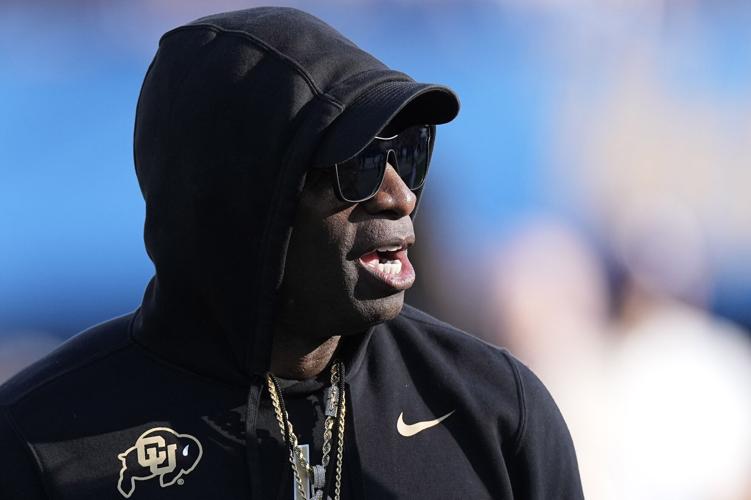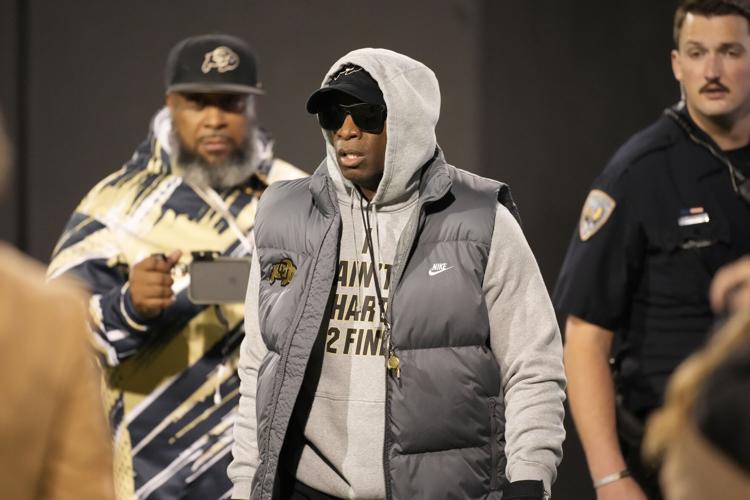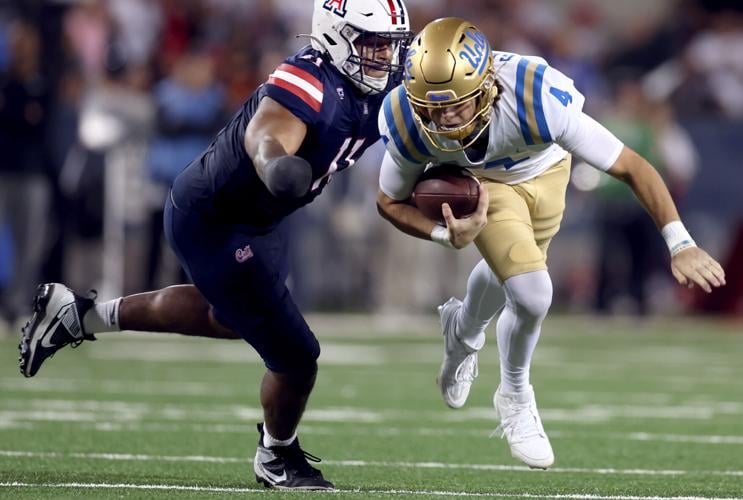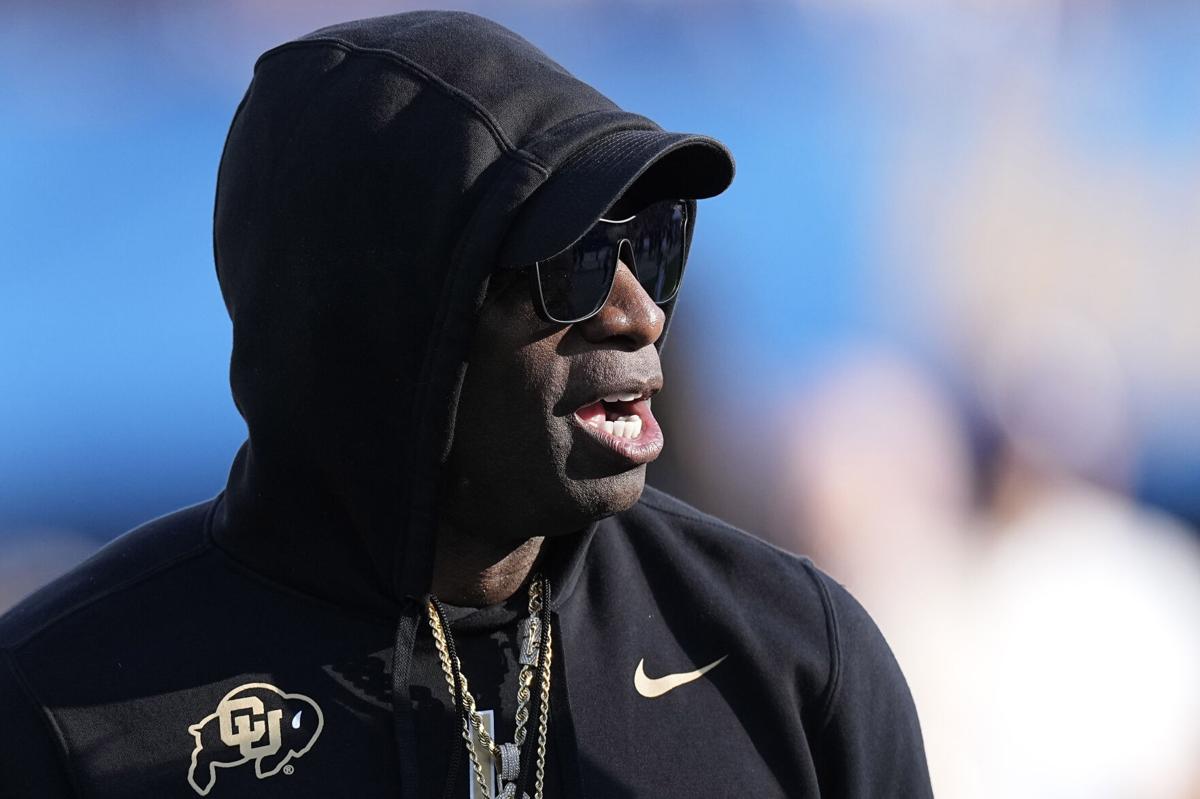Nine games into Year 1, it’s too early to judge the Deion Sanders Experiment at Colorado — just as it was too soon to draw conclusions after the TCU game and the Buffaloes’ 3-0 start.
Regardless of how this first season ends up — the now-reeling Buffs have lost five of six entering Saturday’s game against Arizona — I view Sanders’ ascent to Power Five football as a net positive. He has driven TV ratings. He has sold out stadiums. He has made CU football relevant again.

Michael Lev is a senior writer/columnist for the Arizona Daily Star, Tucson.com and The Wildcaster.
That doesn’t mean I like everything “Coach Prime” has said or done.
We want our coaches and players to be honest when speaking publicly, and it’s fair to say that we don’t handle it well sometimes when they are. But there are times that call for tactfulness. Sanders was a skilled technician as a cornerback who could bait a quarterback into an ill-advised throw; he’s as blunt as a sledgehammer when interacting with the media.
The most recent, notable example came after Colorado’s 28-16 loss to UCLA on Oct. 28. The Buffs had just 25 net rushing yards and surrendered seven sacks. The offensive line has been a problem area for most of the season, and Sanders was asked about it afterward.
“The big picture, you go get new linemen,” Sanders said. “That’s the picture, and I’m gonna paint it perfectly.”
Sanders left no room for interpretation with that statement. That’s the way he rolls.
In my weekly football preview column, I have a segment called “What he said/What he meant.” The idea behind it is to extrapolate what a coach or player is actually thinking when he makes a carefully crafted comment to the media.
Sanders always says what he means. Which is fine ... to a point. If you were one of Colorado’s offensive linemen, or one of their family members, how would you feel about Sanders’ public criticism? He basically said those players aren’t good enough.
Jedd Fisch would never say that. He’d say, “We have to improve,” or “We have to keep working,” or “We have to continue to develop.” Most coaches would frame it that way. Sanders isn’t most coaches.

Colorado coach Deion Sanders watches players warm up before the Buffaloes’ game against Oregon State last week. The Buffaloes host Arizona on Saturday at noon.
For the most part, that’s a good thing. Sanders is incredibly charismatic and entertaining. Part of what makes college football great and unique is its cast of characters. Jim Harbaugh is an oddball and possibly a cheater, but the sport is better off with him than without him. The heel turn will endure for eternity.
The question is whether Sanders’ program-building strategy is good for Colorado football in the long run.
The Buffs are unquestionably a better, more talented team than a year ago. It would be hard to be worse than the 2022 squad, which went 1-11 and was outscored 534-185. Colorado’s point differential of minus-349 was more than double that of the 2021 Wildcats (minus-171), who also went 1-11.
You couldn’t blame Sanders for wanting to clean house and turn over the roster. He did so by using the transfer portal in a way no one ever had. He brought in an astonishing 51 players, about half of whom enrolled in spring or summer. He didn’t seem particularly interested in trying to coach up the holdovers or in implementing a long-term plan.
Sanders has treated the portal like a revolving door, with streams of players shuffling in and out. He intimated — check that; flat-out declared — that he’ll be seeking offensive linemen in the next cycle. That’s all well and good. But every time a halfway decent blocker enters the portal, every team in the country tries to get him. As someone in the UA program told me, “Nobody has enough. The scarcity is ridiculous. The competition is outlandish.”
Some programs have succeeded by using the portal as a primary means of stocking the roster. Ole Miss is one such example.
Fisch hasn’t approached it that way. He has utilized the portal as a way to supplement his high school recruiting classes. He brought in 23 prep recruits in 2022, 25 this year and has 22 verbal commitments for next year. Colorado currently has only 10, although it’s pretty likely Sanders will be able to flip some high-profile recruits late in the going, even if his team keeps losing.
From the day he was hired, Fisch has talked about building a program, no matter how long that took. He aimed for something sustainable. The Wildcats just so happen to be running a bit ahead of pace, a credit to his staff’s ability to identify talent and develop it.
(Fisch did concede that he would have handled the roster build differently that first offseason if the rules had been the same. Sanders had no cap on how many players he could add; Fisch did. But there’s zero chance Fisch would have brought in 50 players that first year because there weren’t 50 Pac-12-caliber players available.)
Is Sanders in it for the long haul at Colorado? We’ll see. His personnel strategy suggests he’s seeking quick fixes vs. long-term solutions. And the speculation that he’ll seek a “better” job elsewhere, perhaps as soon as the 2024-25 offseason, has only waned because the Buffs are struggling. It’ll pick up steam if/when they start winning again.
Arizona has two players who were part of the CU program during the spring semester: receiver Montana Lemonious-Craig and defensive end Taylor Upshaw. Both have shied away from saying anything negative about their experiences under Sanders.

Arizona edge rusher Taylor Upshaw, left, has been looking forward to Saturday’s game against Deion Sanders and Colorado for months.
Lemonious-Craig, who’d been in Boulder since 2020, left despite playing a starring role in Colorado’s nationally televised spring game. Upshaw left despite being exactly the type of player the Buffaloes could use right about now. They rank next to last nationally in total defense.
Upshaw transferred to Colorado from Michigan in January — then left five months later. Regarding that decision, Upshaw said: “Turns out it probably wasn’t the best fit for myself.” I’ve heard it wasn’t a situation where Sanders and his staff didn’t think Upshaw was good enough.
But they also clearly didn’t make a positive impression on him.
Upshaw tweeted that he was coming to Arizona on May 4. Six days later, he posted a message that said “11/11/23” — the date of the UA-CU game — with eyeball, popcorn and hand-over-mouth emojis. He reposted that message this week.
No extrapolation necessary.
The Arizona Wildcats will have a postseason and play in a bowl game after beating No. 19 UCLA 27-10 in Tucson. Video by Justin Spears / Arizona Daily Star








